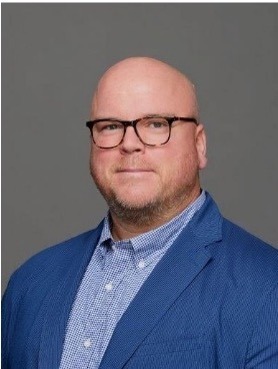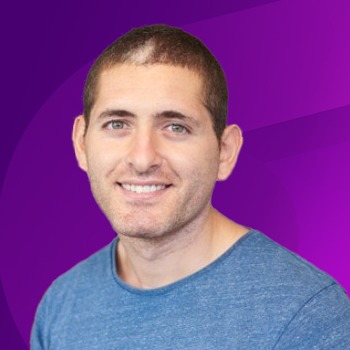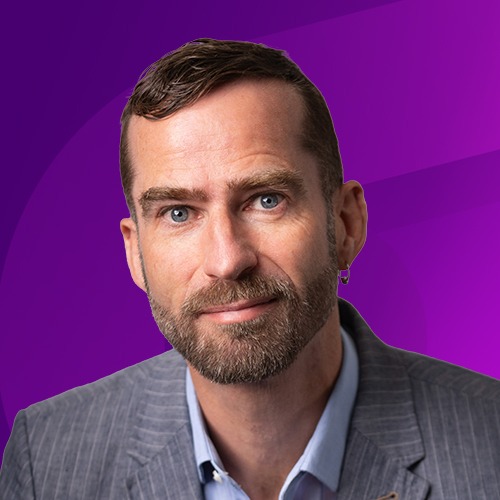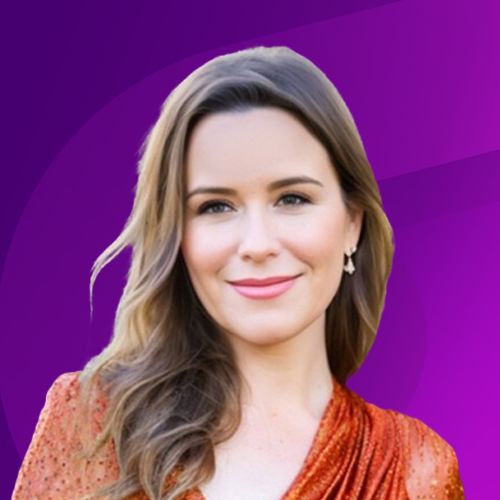In a rapidly shifting business environment, the ability to adapt has turned into a fundamental requirement for businesses. Recognizing this, iluminr has introduced the Gamechangers in Resilience interview series, a dedicated platform to honor influential leaders who have taken the lead in fostering adaptability and resilience within their organizations, clients, and communities.
This series brings together perspectives from around the world, putting a spotlight on these remarkable individuals. They have not only enabled their teams, ecosystems, and communities to thrive in the midst of challenges but have also become shining examples of leadership in ambiguity. By honoring their achievements, iluminr pays tribute to the influence these leaders wield and their unwavering dedication to achieving success, even when confronted with obstacles.
As the Director of Forensic Data Analytics at BDO, Mike Geier has demonstrated success leading digital transformation initiatives. With his expertise in Business Process Architecture, Risk and Resilience, IT Strategy and Management, Mike has established himself as a skilled operations professional. Mike is passionate about delivering innovative solutions and leveraging data analytics to help organizations drive growth and navigate complex challenges. Mike is a Gamechanger you should know driving innovation in the field of Risk and Resiliency.
Q: Mike, how did you get here? What was your journey to where you are today?
Mike: I started out studying economics and biology at NYU. After college, I took a role running statistical models on a supercomputer (nerd alert 😊). Next I transition over into the CRM space with both Oracle and Salesforce consulting. I joined Fusion Risk Management to bolster and grow their delivery capabilities, which is where I dove into all things resilience.
In my consulting work, I help companies of all sizes adapt to change. I strive to help companies build resilience. I help companies understand the risks they face, develop plans to mitigate those risks, and build cultures that are adaptive to change.

Q: You have this extraordinary knack at picking up signal and translating it to action. What advice would you give to others helping their organizations better adapt to the relentless stream of change we experience today?
Mike: My advice is to focus on understanding what outcomes you are trying to achieve. Keeping those goals front of mind is your guiding light as you are bombarded with information, tasks, and distractions. Secondly, knowing what not to do is critical to making sure your efforts bring the greatest benefit. Sometimes saying “no” is key. Thirdly, set some time aside everyday to ruminate – let your mind wander a bit. I get my best ideas after stepping away from the screen for a bit.
Q: How can companies better leverage risk and resilience management to protect revenue?
Mike: I start with aligning resilience teams to think like executives – how can we decrease cost, increase revenue, or decrease risk. Resilience is a service we provide to the organization, so I help these teams figure out what that value, quantitatively. I take a data driven approach to:
- Understand their risks. What are the things that could happen that would disrupt their business? Focus on what percentage of your revenue we can protect and what investment would we need to close any gaps and what is the ROI.
- Develop plans to mitigate those risks. What steps can they take to reduce the likelihood or impact of those risks?
- Build a culture of resilience. A resilient culture is one where people are empowered to act using response frameworks, have clear escalation paths and where mistakes are seen as opportunities to learn.

Q: What is the key ingredient that distinguishes agile firms from not?
Mike: The key ingredient that distinguishes agile firms from not is their ability to adapt to change.
Agile firms are constantly learning and adapting, and they’re not afraid to fail.
They’re also good at communicating and collaborating, which helps them to quickly respond to change.

Q: As client advisor and technology leader for companies of all shapes and sizes, one of the things I’ve observed about you is you belong literally everywhere you go, and yet you are one of the most authentic people I know. How are you able to effectively navigate cultural differences, connecting so effectively with others, without losing the uniqueness of your perspective?
Mike: I’m grateful that you’ve think that. I think it’s important to be able to connect with people from different cultures and backgrounds. I love to learn and one of my favorite ways to do that is by actively listening and getting to know what people’s passions are. You never know where you next great idea or collaboration will be.
Q: Of course, I have to ask, what is your Resilience Archetype?
Mike: You may not be surprised to learn that I fall into the Challenger Resilience Archetype. I’m someone who is always looking for new ways to do things, but I’m also someone who is not afraid to fail.
There have been many times in my where the 10th version of something was 1000x better than my first try.
Resilience through perseverance, right?

Q: How does that come to life in the work you do?
Mike: It is core to what I do. My customers and team come to me when they don’t know how to tackle a problem or reach a goal. The truth is that I don’t always have the answer, but I will make a plan to get to the answer. I am not afraid of uncertainty and will jump in the mire with you and figure out how we get out.
Q: What are you really putting the reps in to learn?
Mike: I’m really putting the reps in to learn about the future of work. I believe that the future of work is going to be more agile and more adaptable. Flexibility attracts and retains the best talent. I am doing research on the trend of having distributed workforces and how that affects an organization’s resilience. The risks this workforce faces are different and building a culture of resilience is more important than ever.














